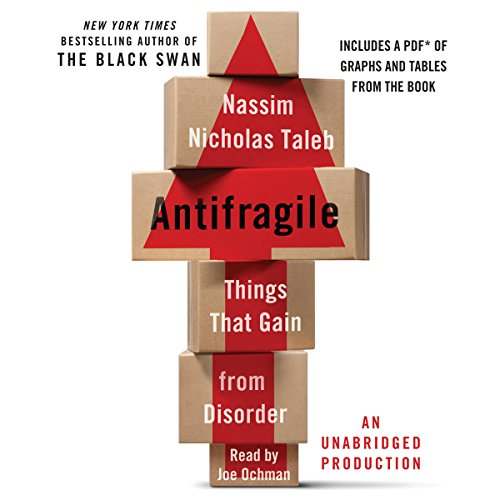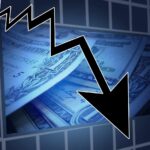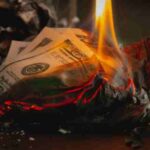Many small businesses were forced to close as a result of the Coronavirus pandemic. Frankly, every decade or so the economy is rocked to its core, leading to an extinction-level event for many businesses. Charles Darwin called it survival of the fittest. Every now and then, we benefit as a society by the thinning of the herd. However, whenever a crisis occurs, it disproportionately hurts a few fragile industries while lifting what are called Antifragile ones. This is why you need to study risk and not try to manage it.
According to Nassim Taleb, the author of Antifragile – Things that Gain from Disorder, businesses that focus on business risk management become paranoid. As such, they put policies and procedures in place to avoid business risk-taking. Instead, Taleb says businesses should study risk and take acceptable business risks when appropriate. Rather than avoiding risk and developing plans to manage worst-case scenarios, businesses should identify and avoid only the kinds of business risks that will lead to the ruination of the business during what he calls black swan events, such as the market crash of 2007-2008 or the more recent COVID-19 pandemic.
Business risk can be divided into three primary camps; Operational, Financial, and Governmental.
- Operational business risks are failures related to day-to-day operations that can impede a company’s ability to earn revenue. Operational business risks are often the result of insufficient or failed processes. Operational risk can be further divided into Strategic, Reputation, Quality, Resource, Seasonal, Structure, and Contract.
- Financial business risk is where external factors can cause a business to lose money. Financial business risk has the potential to produce damaging results for the business. Financial risk can further be divided into Credit, Currency, Interest Rate, and Inflation.
- Governmental business risks are where political events and outcomes can impede a businesses’ ability to succeed, or encourage businesses to take certain actions. Government risk can further be divided into Taxation, Compliance, and Country.
As a business studies risk, they need to recognize how their ecosystems will respond to a black swan crisis. Taleb describes three types of ecosystems based upon how they respond to stressors, shocks, volatility, mistakes, faults, attacks, and failures.
1. Fragile Business
Fragile = Something that does not like shocks or can’t tolerate mistakes. Fragile businesses are disproportionately hurt and have greater downside risk during and after a crisis.
Being fragile can be caused by being exposed to any combination of the three types of risk. However, one kind of risk is significantly over-represented when it comes to being fragile and that is financial risk, and more specifically, credit risk.
Any business that is highly leveraged suffers from credit risk. Being highly leveraged means that you make more money in good times and lose more in bad times. Having high operating leverage amplifies your risk, making the business fragile.
Families can also be exceptionally fragile, especially when it comes to being leveraged. Remember the stock market crash of 2007-2008? Homeowners who had a home mortgage plus a home equity line of credit (HELOC) loan, and regularly extracted the growing equity from their home to fund their conspicuous consumption lifestyle were highly leveraged. When housing prices dropped, they discovered they were upside down and owed more than the property could sell for, and many lost their homes in foreclosure. Day traders with a margin account, which allowed them to buy stock without cash by pledging portfolio assets as collateral, were also highly leveraged. When the market crashed, many got a margin call and were forced to sell their stock holdings at rock bottom values.
Fragile organizations happily go about business day in and day out when times are good. However, when their business is exposed to shock or stress, such as the mortgage or coronavirus crisis, their business model breaks, and they crumble like a house of cards. Fragile businesses are quick to expire in the face of seismic shifts.
Society is made better when fragile businesses are allowed to fail while they are still small and not when they are too big to fail, as we learned during the financial crisis of 2007-2008.
2. Robust Business
Robust = Something that does not respond to shocks or mistakes. Robust businesses have minimal downside risk and little upside opportunity during a crisis
Many consider robust to be the opposite of fragile. A glass figurine may be fragile while a rock may be considered robust. Robust things do not change when external conditions do. If you drop a box with a glass figurine inside, you stand a good chance that the figurine will break. If you drop a box with a rock inside, the box may get crushed but the rock remains robust.
While a robust ecosystem may experience a temporary setback during a time of crisis, they have proven to remain resilient. After a crisis has passed, they emerge pretty must about the same as they did going into the crisis.
Many entrepreneurs may see that having a business in a robust industry is the best type of business to operate. Surely a robust business must be better than a fragile one. However, there is a third and better type of business, according to Nassim Taleb.
3. Antifragile Business
Antifragile = Something that thrives during periods of crisis. Antifragile businesses see disproportional gains and have greater upside opportunity during market volatility or periods of crisis
When I think of Antifragile, I can’t help but think of the sorcerer’s apprentice from Fantasia. When Mickey realizes that he does not know the spell to stop the broom, he attempts to destroy the broom by hitting it with an ax only to discover that each piece of the broom becomes a whole new broom.
Decentralized organizations such as ISIS or the Apache nation have shown that when you kill one of their leaders, they go underground, learn from the situation, make adjustments, and re-emerge stronger. A crisis creates fear in the general public. If your business can help the prospect deal with their fears, you can be Antifragile and make significant gains in your industry.
All this discussion about Fragile, Robust, and Antifragile may sound abstract. Let’s look at how these three concepts affect something as simple as a person’s reputation.
- When you are an employee, you are fragile. If you screw up, it becomes part of your employment record. Your reputation is forever damaged so long as you remain an employee with the business.
- When you are a taxi driver you are robust. If you screw up and get lost or just piss off a fare it will not affect your reputation. Your next fare will not know the mistakes you made with previous passengers.
- When you are a social influencer, you are Antifragile. If you make a highly polarizing statement and get plenty of engagement including negative comments and thumbs down, it feeds the algorithm ranking you higher, and therefore, making you more popular.
Small and medium-sized businesses that are growing often rely on debt financing to scale their business, and as a result of operating leverage, are fragile. Small businesses, by virtue of the fact they have unproven leadership and unproven business models, are susceptible to greater operational risks and as such are fragile.
Many large enterprises tend to be robust because they are seen as critical to the nation and are too big to fail. Large institutional banks, for example, have a disproportionally higher exposure to financial risk and should be fragile, however, their size makes them too big to fail. When they encounter a black swan event, such as the financial crisis of 2007-2008, the government came to the rescue. While banks are disproportionately the recipient of bailouts during the financial crisis, other industries such as airlines, automotive, hospitals, and insurance companies can be considered robust simply based on a federal safety net.
When I think of robust industries, I think about traditionally recession-proof businesses. Sin (alcohol, tobacco, gambling, sex-related), automotive, healthcare, education, supermarkets, and nursing homes represent industries that have weathered countless crises, and have minimal downside risk and little upside opportunity during a crisis.
As former Chief of Staff for Barack Obama, Rahm Emanuel, so famously once said:
“You never want a serious crisis to go to waste.”
Rahm Emanuel
Industries and governments that prey on human emotions can exploit a crisis for their benefit. Industries that have a history of being Antifragile industries include businesses that make and sell guns and ammunition, as well as the media. In response to most types of crises, these industries often spread messages of fear and have a tendency to surge in response to a crisis.
How can you manage your business risk and become Antifragile?












